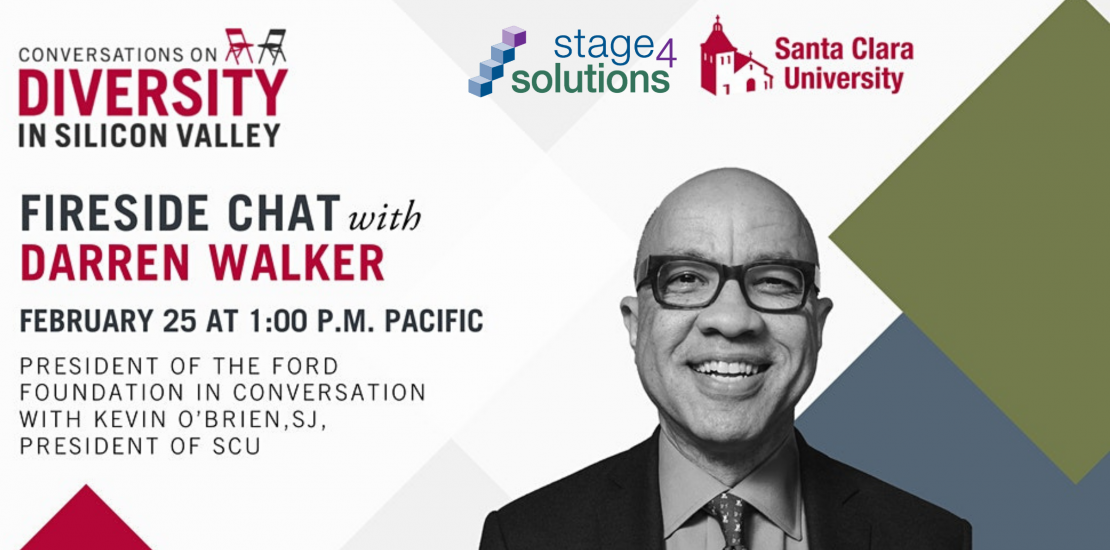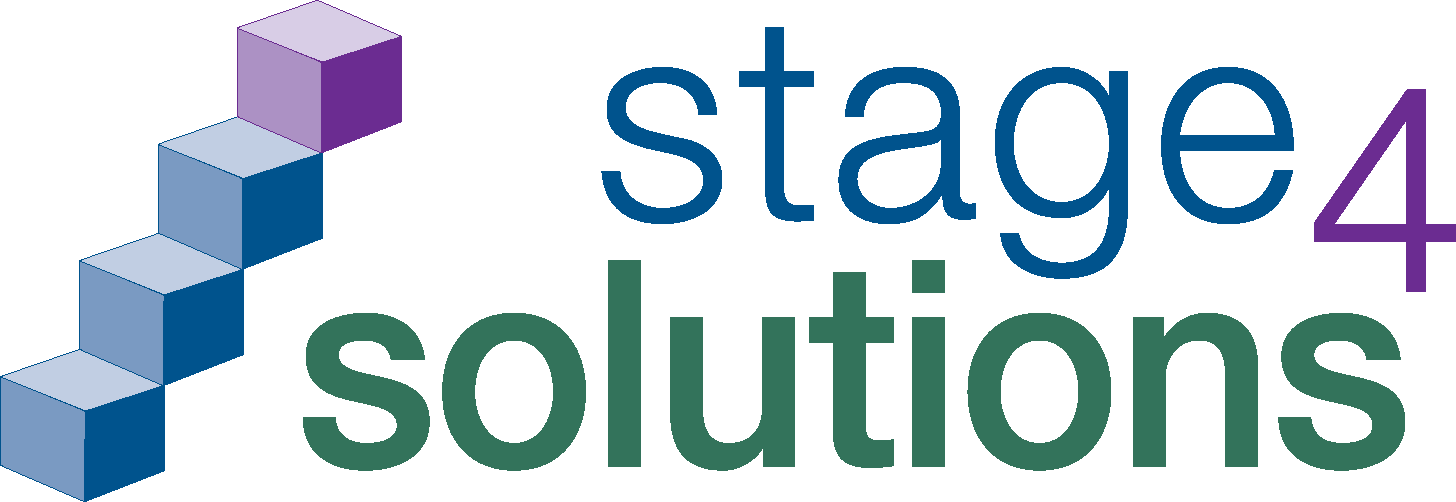Disrupting Systemic Injustice: Inspiration from Darren Walker, Ford Foundation President
- March 30, 2021
- Posted by: Niti Agrawal
- Category: Blog

The final session of the Conversations on Diversity webinar series Stage 4 Solutions co-sponsored with Santa Clara University’s Silicon Valley Executive Center was held on February 25, 2021, with a fireside chat with Darren Walker, Ford Foundation President, a $13 billion international social justice philanthropy. It was a great privilege to hear Darren share his personal journey and learn his perspective on the roots of systemic racism and inequality, and what the Ford Foundation is doing to create radical change.
Darren had a difficult upbringing and grew up in poverty, like many people of color in the US. In the 1960s, he was enrolled in a then new government-funded scholarship program called Head Start, which allowed him to receive an excellent public education. He feels grateful for this education and felt then and now that his country believed in him. If he were born in another place in the world, he would not have had the opportunities he received and achieved his career success. Starting as a busboy at the age of 13 in a white and primarily racist community, he climbed the ladder and became a powerful leader in both the for-profit and non-profit world.
Darren touched upon key points to why we still discuss “racism” today and what needs to be done to truly change dynamics around justice and equality. To really understand and change racism, we need to look at the systems and structures in which we live. Unfortunately, racism has been built in those systems.
Sometimes unintentional actions or statements can be a barrier to becoming a more just and equal nation or organization. His example was the term “colorblind.” Today, organizations believe they achieve equality by saying they are “colorblind” without truly looking into the systems that create inequity. There is still so much to learn and change about how we understand and approach these topics.
Data shows that a very small percentage of venture capital goes to women or minority founded businesses. According to Darren, there are many layers of complexity in this and to fix it, we need to understand and get to the bottom of how the system is designed. The networks of capital investments are highly relationship-driven, based on who you know, your family knows, your schools, universities, roommates, etc. The majority of the capital goes to privileged white people from white neighborhoods who are in these networks where the unprivileged or minorities are not a part. One other reason is the assets inherited over generations by white people. Black people or other minorities do not have assets pass through generations. Another contributor is the education system, from tuition to getting into the universities leveraging relationships in specific environments. He is certainly concerned about the future of higher education for the underprivileged.
As more people and leaders realize this reality and the structures that create it, we can take a step further to really changing it. We need to change our behavior first, as individuals and as organizations and communities. If the leaders begin to change, acknowledging the system’s advantages to certain groups and disadvantages to certain groups, and deconstruct and rebuild the structures, then we will see improvements in these areas.
Darren strongly believes in the definition of “philanthropy” by Martin Luther King. It is not just about charity and giving, but also about justice and dignity. It is not what I can give back, but what I can give up. How can we as a society provide more dignity and equality to minorities and people without privilege? How can we create more opportunities?
If you missed this webinar, please click here to watch the recording of this powerful session.
We aim to provide value to our clients and professional communities by organizing and sponsoring events that educate and inspire. Please join us in our upcoming events.
- April 8, 11 a.m.–12 p.m. PT – Putting Purpose into Practice; Presented by Jay Jakub
- April 22, 11 a.m.–12 p.m. PT – What Brave People Do That Cowards Can’t; Presented by Chris Lowney

